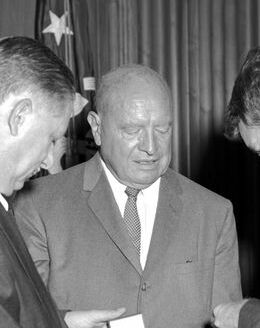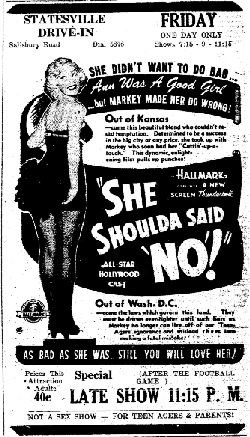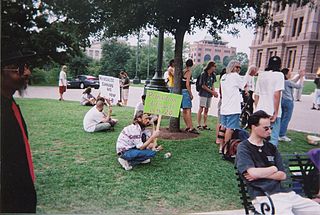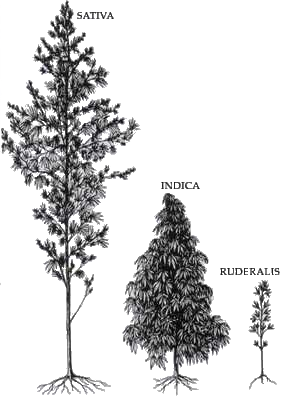
The Marihuana Tax Act of 1937, Pub. L.Tooltip Public Law 75–238, 50 Stat. 551, enacted August 2, 1937, was a United States Act that placed a tax on the sale of cannabis. The H.R. 6385 act was drafted by Harry Anslinger and introduced by Rep. Robert L. Doughton of North Carolina, on April 14, 1937. The Seventy-fifth United States Congress held hearings on April 27, 28, 29th, 30th, and May 4, 1937. Upon the congressional hearings confirmation, the H.R. 6385 act was redrafted as H.R. 6906 and introduced with House Report 792. The Act is referred to, using the modern spelling, as the 1937 Marijuana Tax Act. It was overturned in 1969 in Leary v. United States, and was repealed by Congress the next year.

A cannabis edible, also known as a cannabis-infused food or simply an edible, is a food item that contains decarboxylated cannabinoids from cannabis extract as an active ingredient. Although edible may refer to either a food or a drink, a cannabis-infused drink may be referred to more specifically as a liquid edible or drinkable. Edibles are a way to consume cannabis. Unlike smoking, in which cannabinoids are inhaled into the lungs and pass rapidly into the bloodstream, peaking in about ten minutes and wearing off in a couple of hours, cannabis edibles may take hours to digest, and their effects may peak two to three hours after consumption and persist for around six hours. The food or drink used may affect both the timing and potency of the dose ingested.

Harry Jacob Anslinger was an American government official who served as the first commissioner of the U.S. Treasury Department's Federal Bureau of Narcotics during the presidencies of Herbert Hoover, Franklin D. Roosevelt, Harry S. Truman, Dwight D. Eisenhower, and John F. Kennedy. He was a supporter of Prohibition, and of the criminalization of all drugs, and spearheaded anti-drug policy campaigns.

Stoner film is a subgenre of comedy film based on marijuana themes, where recreational use often drives the plot, sometimes representing cannabis culture more broadly or intended for that audience.

Reefer Madness is a 1936 American exploitation film about drugs, revolving around the melodramatic events that ensue when high school students are lured by pushers to try marijuana – upon trying it, they become addicted, eventually leading them to become involved in various crimes such as a hit and run accident, manslaughter, murder, conspiracy to murder and attempted rape. While all this is happening, they suffer hallucinations, descend into insanity, associate with organized crime and commit suicide. The film was directed by Louis J. Gasnier and featured a cast of mainly little-known actors.

She Shoulda Said 'No'! is a 1949 exploitation film that follows in the spirit of morality tales such as the 1936 films Reefer Madness and Marihuana. Directed by Sam Newfield and starring Lila Leeds, it was originally produced to capitalize on the arrest of Leeds and Robert Mitchum on a charge of marijuana conspiracy.

In the United States, increased restrictions and labeling of cannabis as a poison began in many states from 1906 onward, and outright prohibitions began in the 1920s. By the mid-1930s cannabis was regulated as a drug in every state, including 35 states that adopted the Uniform State Narcotic Drug Act. The first national regulation was the Marihuana Tax Act of 1937.

Cannabis culture describes a social atmosphere or series of associated social behaviors that depends heavily upon cannabis consumption, particularly as an entheogen, recreational drug and medicine.

Marijuana, or marihuana, is a name for the cannabis plant and more specifically a drug preparation from it. "Marijuana" as a term varies in usage, definition and legal application around the world. Some jurisdictions define "marijuana" as the whole cannabis plant or any part of it, while others refer to "marijuana" as a portion of the cannabis plant that contains high levels of tetrahydrocannabinol (THC). Some jurisdictions recognize "marijuana" as a distinctive strain of cannabis, the other being hemp. For legal, research and statistical reference, "marijuana" generally refers to only the dried leaves and flowering tops, with by-products such as hashish or hash oil being uniquely defined and regulated. The form "marihuana" is first attested in Mexican Spanish; it then spread to other varieties of Spanish and to English, French, and other languages.

Victor Licata was an American mass murderer who used an axe to kill his family in Ybor City, Tampa, Florida, on October 16, 1933. The killings, which were reported by the media as the work of an "axe-murdering marijuana addict", were adduced as prima facie evidence that there was a link between recreational drugs, such as cannabis, and crime. This led to the killings being abused in 1930s anti-drug campaigns against marijuana.

Chris Conrad is an American author, activist, curator, publisher and court-recognized expert in cannabis cultivation and use. He has played a key role in the shaping of the modern industrial and medical cannabis reform movements as the author of such seminal books as Hemp: Lifeline to the Future (1993) and Hemp for Health (1997), as well as through his activist work as the co-founder and first President of the Hemp Industries Association (HIA), founder of the Business Alliance in Commerce and Hemp (BACH), and a signature gathering coordinator for the Proposition 215 volunteer effort which made California the first US state to legalize the medical use of cannabis. The December, 1999 issue of High Times ranked Conrad #10 on its list of top 25 "living legends in the battle for legal cannabis."

Cannabis in Texas is illegal for recreational use. Possession of up to two ounces is a class B misdemeanor, punishable by up to 180 days in prison and a fine of up to $2000. Several of the state's major municipalities have enacted reforms to apply lesser penalties or limit enforcement, however.

Terms related to cannabis include:

The following outline is provided as an overview of and topical guide to the plant Cannabis sativa and its relatives Cannabis indica and Cannabis ruderalis, the drug cannabis (drug) and the industrial product hemp.
A cannabis cookbook is a cookbook for preparing cannabis edibles, often in the form of a baking guide. According to The New York Times, baking recipes are popular because "[THC] dosing is easier to control in batter-based dishes or chocolate". Such cookbooks existed prior to United States legalization; The Alice B. Toklas Cook Book published in 1954, for instance, or The Marijuana Chef Cookbook published in 2001 under the pseudonym S.T. Oner, but became more commonplace after California and other states legalized in the 2010s. Notable chefs like Laurie Wolf and Jasmine Shimoda have created or contributed to cannabis cookbooks.

Pot Planet: Adventures in Global Marijuana Culture is a 2002 non-fiction book about cannabis, cannabis tourism, and drug policy by Canadian author Brian Preston.














